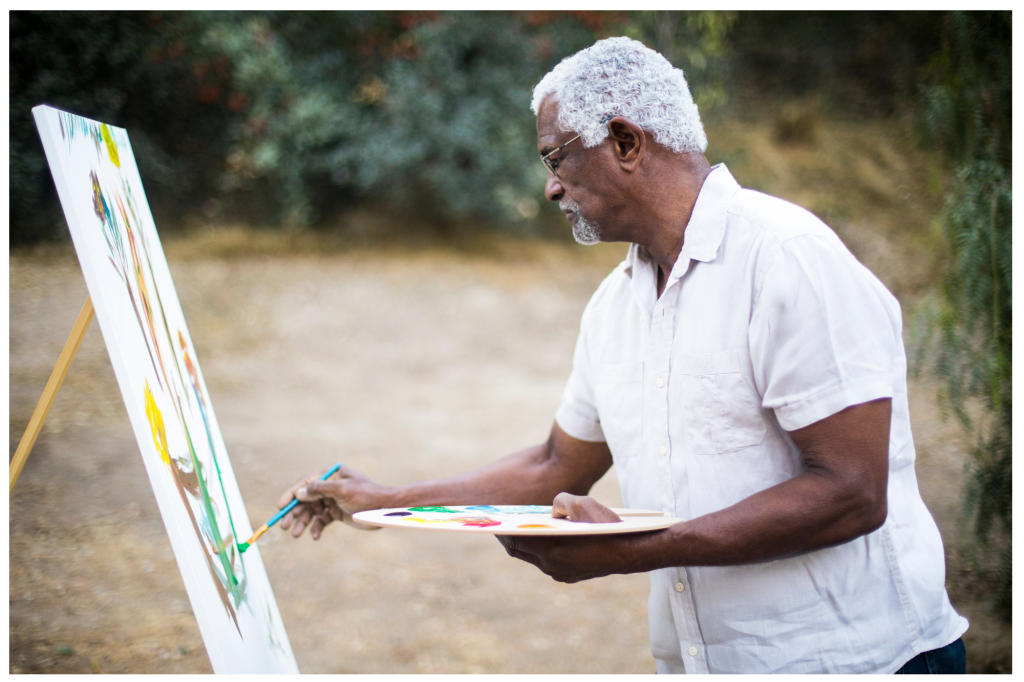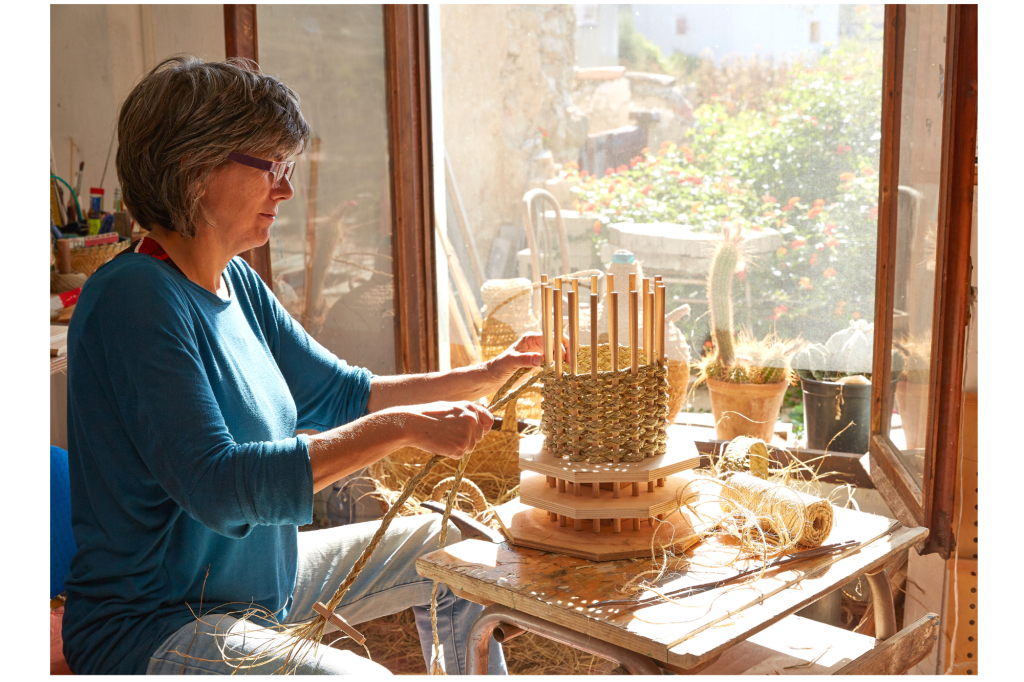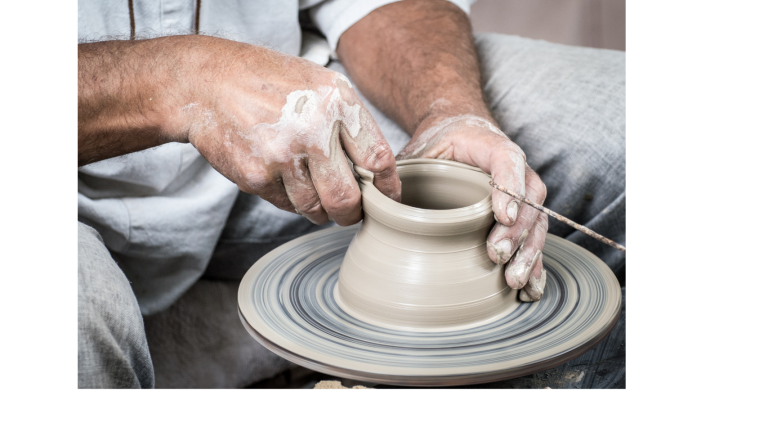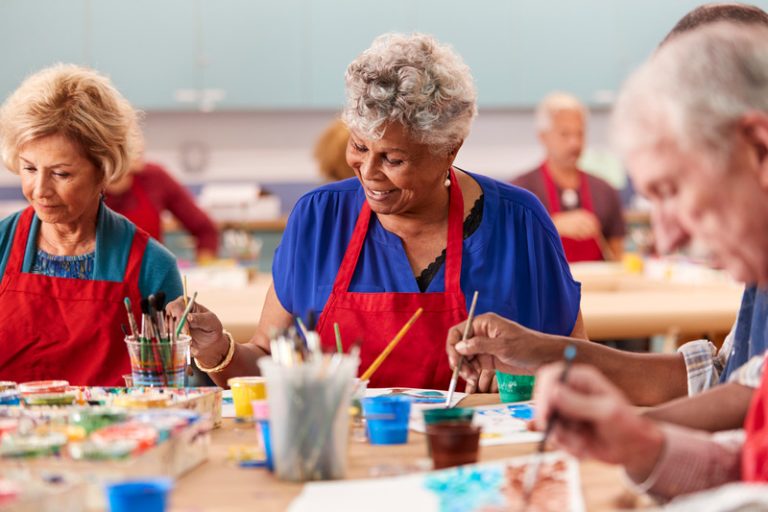Explore the Best Hobbies for Retirees
I have several friends and relative who have been retired for years now. I am always amazed at common factor that exists between those that are happy and enjoying their retirement, and those that seem to be bored and unhappy with their retirement life.
The common factor is those that are enjoying their retirement fill their extra time with activities and hobbies, and those that are unhappy do not. It’s as simple as that. I decided to do a little research to see if this was just a coincidence.
This article will prove that hobbies are more than just a way to pass time by sharing how they can actually help you in several important ways. You will also be provided with some popular examples of hobbies that you can try right away.
Creative activities and hobbies: Long term advantages for retirees
The long-term practice of creative and active hobbies or similar activities has been shown to offer significant advantages to those who engage in them regularly.
A series of Synapse Project studies found that older people who spent several hours per week for a few months learning to participate in a new craft activity improved their cognitive function and brain efficiency when compared to study participants who did little to none of the same activities.
This research revealed that membership in various sorts of organizations, such as hobby or volunteer groups, resulted in reduced deterioration in everyday functioning and independence among older people.
Further research performed by Adams-Price exploring the influence of long-term creative and active hobby practice revealed that significant involvement in these types of activities may play a role in life happiness and good aging.
Their research discovered four elements:
- Identity
- Spirituality
- Relaxation
- Mastery or recognition from others.
These variables influence self-worth and satisfaction. These and other studies demonstrate the importance of creative and active hobbies as a sort of serious hobby that affects cognitive and social well-being as well as life satisfaction for retirees.
Why do hobbies make us feel good?
Hobbies have always been popular with people of all ages around the world. Research has shown that hobbies for retirees have become even more popular as more people leave the workforce. But have you ever wondered why hobbies are so popular?
Science has proven that finding time for hobbies might be beneficial because of how they influence the brain’s reward system. When we engage in an enjoyable activity, chemical messengers in the brain (known as neurotransmitters) are produced, including dopamine, a hormone that helps us feel pleasure. These feel-good hormones might then make us want to return to the pastime and become more motivated to do so.
Therefore, when it comes to retirement, hobbies can provide a fulfilling way to spend your newfound free time, allowing you to explore new skills, meet new people, and create lasting memories. In this article, we will delve into the best hobbies for retirees, considering various factors and interests that can make your retirement years truly enjoyable.
Factors to consider when choosing a hobby for retirement
When selecting a hobby for retirement, it is essential to consider your interests, abilities, and personal preferences. Take some time to reflect on the activities that bring you joy and fulfillment. Consider the following factors:
Physical abilities and limitations
No two people age the same. I played golf in the summer of 2023 with a man who was 85. I was blown away by how good he was. Not to mention how mentally sharp he was. He was 20 years older than me, and I only beat him by two strokes. So golf was one of his main hobbies, which obviously fit him well.
It’s important to choose a hobby that aligns with your physical abilities and limitations. If you have any health concerns or mobility issues, opt for activities that are gentle on the body, such as yoga, swimming, or walking. On the other hand, if you’re in good health and enjoy a challenge, you might consider more physically demanding hobbies like hiking, dancing, or even martial arts.
Interests and passions
Retirement is the perfect time to explore your interests and passions. Think about what activities ignite your curiosity and bring you genuine excitement. Whether it’s gardening, photography, cooking, or woodworking, choosing a hobby that aligns with your passions or is something you’ve always wanted to try will ensure that you stay motivated and engaged in the long run.
Time commitment
Consider the amount of time you want to dedicate to your hobby. Some hobbies require more time and commitment, while others can be enjoyed on a more casual basis. If you’re looking for a hobby to fill your entire day, you might consider something like golf or painting. Alternatively, if you prefer a more flexible schedule, activities like reading, writing, or birdwatching can be enjoyed at your own pace.
Physical hobbies for retirees
We all know the benefits of physical activity. When we retire, we have more potential idle time on our hands. This means that finding activities that require some type of physical exertion is not only great for staying active but also for maintaining overall well-being. Here are a few physical hobbies that retirees can explore:
1. Gardening

Gardening is a wonderful hobby for retirees who enjoy spending time outdoors and have a green thumb. It provides a sense of accomplishment as you nurture plants, grow your own vegetables, and create a beautiful outdoor space. Gardening offers a range of physical benefits, such as increased flexibility and strength and improved mental well-being.
2. Yoga
Yoga is a gentle and low-impact exercise that promotes flexibility, balance, and relaxation. It is suitable for people of all ages and can be adapted to individual needs. Joining a yoga class or practicing at home with the help of online tutorials can be a great way to stay physically active. Additionally, yoga has long been recognized as a means to reduce anxiety and create balance and tranquility.
3. Dancing
Dancing is not only a fun and social activity but also a fantastic way to stay fit. It improves cardiovascular health, coordination, and balance. Whether it’s ballroom dancing, salsa, or even line dancing, there are various styles to choose from based on your preferences and fitness level. Joining a dance class or participating in social dance events can also be a great way to meet new people and make friends.
Creative hobbies for retirees
Engaging in creative hobbies allows retirees to express themselves, tap into their artistic side, and explore their creativity. Here are a few creative hobbies that retirees can consider:
1. Artistic Painting

Painting is a versatile and therapeutic hobby that allows you to express your emotions and create beautiful artwork. Whether you prefer watercolors, acrylics, or oils, painting can be a fulfilling and relaxing activity. You can join a local art class or find online tutorials to learn different techniques and improve your skills.
2. Photography
Photography is a hobby that can be enjoyed at any age and skill level. It allows you to capture precious moments, explore your surroundings, and develop a unique perspective. With the advent of digital photography, it has become easier than ever to learn and experiment with different techniques. Joining a photography club or participating in photography workshops can provide opportunities for learning and sharing your passion with like-minded individuals.
3. Writing
Writing is a creative outlet that allows you to express your thoughts, experiences, and imagination. Whether it’s through journaling, writing short stories, or even starting a blog, writing can be a therapeutic and fulfilling hobby. It gives you the freedom to explore your ideas and share your stories with others. Consider joining a writing group or attending writing workshops to enhance your skills and connect with fellow writers.
Also, if you develop a real passion for writing, you can turn it into a side hustle. Freelance writing is a booming market where you can engage in your passion for writing and earn a few dollars as well. Companies like Upwork and Freelancer are sites that match clients with freelance writers of all experience levels.
Social hobbies for retirees
Engaging in social hobbies not only allows retirees to stay connected with others in similar stages of their lives but also provides opportunities for personal growth and helps in building new relationships. Here are a few social hobbies that retirees can explore:
1. Book clubs
Joining a book club is a fantastic way to indulge in your love for reading while connecting with others who share similar interests. Book clubs provide a platform for lively discussions, intellectual stimulation, and the chance to explore a variety of literary genres. Look for local book clubs in your area, or consider starting one with friends and neighbors.
2. Volunteering
Volunteering is a meaningful and fulfilling way to give back to the community and make a positive impact. Whether it’s working at a local food bank, tutoring children, or helping out at an animal shelter, there are countless opportunities that you can get involved with. Volunteering not only allows you to contribute your skills and experience but also provides a chance to socialize and meet new people who share similar values.
3. Group fitness classes

Group fitness classes, such as aerobics, Zumba, or Pilates, offer a fun and social way to stay active. Exercising in a group setting provides motivation, accountability, and the opportunity to meet new people. Look for local fitness centers or community centers that offer group classes and find one that suits your interests and fitness level.
You can also sign up for a free gym membership if you are over the age of 65. Silver Sneakers is a program consisting of a large network of fitness centers across the US. This program is part of Medicare and is designed to give retirees easy access to gyms and fitness centers, some of which offer group fitness classes.
The benefits of joining hobby groups or clubs in retirement
As a retiree, joining hobby groups or clubs can enhance your hobby experience and provide numerous benefits. Here are some advantages to becoming part of a hobby group or club:
1. Camaraderie and socialization
Joining a hobby group or club allows you to connect with like-minded individuals who share your interests. It provides an opportunity to make new friends, share experiences, and build a sense of community. The camaraderie and support of fellow hobbyists can enrich your recreational journey and make it more enjoyable.
2. Learning and skill enhancement
Being part of a hobby group or club exposes you to a wealth of knowledge and expertise. You can learn from experienced members, participate in workshops or demonstrations, and gain insights that can enhance your skills and understanding of your chosen hobby. The collective knowledge within the group can accelerate your learning curve and inspire you to explore new techniques and approaches.
3. Networking and collaboration
Hobby groups or clubs often organize events, exhibitions, or competitions where members can showcase their work or skills. This provides an opportunity to network with professionals in the field, collaborate on projects, and gain recognition for your achievements. Networking within your hobby community can open doors to new opportunities and expand your horizons.
Hobbies for retirees that promote mental and emotional well-being
Retirement is an excellent time to prioritize your mental and emotional well-being. Engaging in hobbies that promote relaxation, self-reflection, and emotional balance can greatly contribute to your overall happiness. Here are a few hobbies that can help achieve this:
1. Meditation

As mentioned earlier, meditation is a powerful tool for promoting mental and emotional well-being. It helps reduce anxiety, improve sleep quality, and cultivate a sense of inner peace. By incorporating meditation into your daily routine, you can experience a greater sense of calm and clarity.
2. Journaling
Journaling can be a therapeutic practice that allows you to process your thoughts and emotions. It provides a safe space to express yourself, explore your inner world, and gain valuable insights. By establishing a regular journaling habit, you can enhance your self-awareness and develop a deeper understanding of yourself.
3. Playing a musical instrument
Playing a musical instrument is not only intellectually stimulating but also emotionally fulfilling. Music has the power to evoke emotions, uplift the spirit, and provide a means of self-expression. Whether you’re playing alone or with others, the act of creating music can be deeply enriching and bring joy to your life.
Hobbies that can generate income in retirement
For some retirees, pursuing hobbies that can generate income can be an attractive option. While it’s not necessary to monetize your hobbies, it can be a fulfilling way to supplement your retirement income or pursue a passion project. Here are a few hobbies that can potentially generate income:
1. Crafts and handmade products

If you have a knack for crafts or creating handmade products, you can consider selling your creations online or at local craft fairs. Whether it’s knitting, woodworking, jewelry-making, or pottery, there is a market for unique and handmade items. Building an online presence through platforms like Etsy or starting your own website can help you reach a wider audience.
2. Blogging
If you have a way with words, writing or blogging can be a rewarding hobby that can generate income. You can write articles, stories, or even start a blog on a topic you’re passionate about. Monetization options include affiliate marketing, sponsored content, or even self-publishing books. Building a loyal readership and providing valuable content are essential for success in this field.
3. Teaching or coaching
If you have expertise in a particular field or have developed advanced skills in a hobby, consider teaching or coaching others. You can offer private lessons, conduct workshops, or even create online courses. Sharing your knowledge and helping others learn can be a fulfilling way to generate income while making a positive impact.
How to get started with a new hobby in retirement
Starting a new hobby in retirement can be an exciting and fulfilling endeavor. A step-by-step approach is the most effective way to begin a new hobby. Here are a few steps to help you get started:
1. Research and explore
Spend some time researching different hobbies that align with your interests and preferences. Look for resources, books, or online forums that provide information and guidance on getting started. Explore local community centers, hobby stores, or online platforms that offer classes and workshops related to your chosen hobby.
2. Start small and set goals.
When beginning a new hobby, it’s important to start small and set achievable goals. Break down the learning process into manageable steps and gradually increase the complexity or challenge. Setting goals can help you stay motivated and track your progress along the way. It’s wise not to invest too much money in supplies or resources until you are sure it is something you definitely want to pursue. Just dip your toe in the water before diving in.
3. Invest in the necessary tools or equipment
Depending on the hobby you choose, you may need to invest in specific tools or equipment. Do this only after you are certain you want to fully pursue this hobby. Start with the basics and gradually expand your collection as you become more experienced. Look for second-hand options or borrow equipment from friends or local hobby groups before committing to a significant investment.
Resources and tools for finding the best hobbies for retirees
Finding the best hobbies for retirees can become overwhelming if you let it. Thankfully, you can simplify the process with the help of various resources and tools. Here are a few suggestions:
1. Online hobby communities and forums
Joining online hobby communities and forums can provide a wealth of information, advice, and inspiration. Platforms like Reddit, Facebook groups, or specialized hobby forums can connect you with enthusiasts from around the world. Engaging in discussions and asking questions can help you discover new hobbies and gain valuable insights.
2. Local community centers and hobby stores
Check out your local community centers, hobby stores, or adult education programs for classes, workshops, or group activities. These resources often offer a wide range of hobby options tailored to retirees. Attending in-person events or classes can provide a chance to meet fellow hobbyists and explore new interests.
3. Online tutorials and courses
The internet is a treasure trove of tutorials and courses on virtually any hobby you can imagine. Websites like YouTube, Skillshare, and Udemy offer a vast array of video lessons and courses taught by experts in their respective fields. Whether you’re a beginner or looking to enhance your skills, online tutorials can be a valuable resource.
Conclusion
Retirement is a time of exploration, self-discovery, and pursuing the things that bring you joy and fulfillment. Engaging in hobbies can play a crucial role in making your retirement years truly enjoyable.
From physical activities that keep you active to creative pursuits that tap into your artistic side, there are countless hobbies for retirees to explore. Whether you choose to join hobby groups, monetize your hobbies, or simply enjoy them for personal satisfaction, the key is to find activities that align with your interests, abilities, and personal preferences. Embrace this new chapter of your life and make the most of your retirement by immersing yourself in the best hobbies for retirees.
Related article: Unleashing Your Potential: How to Find Purpose After Retirement
Start exploring the best hobbies for your retirement journey today and make the most of your newfound freedom and passion!







